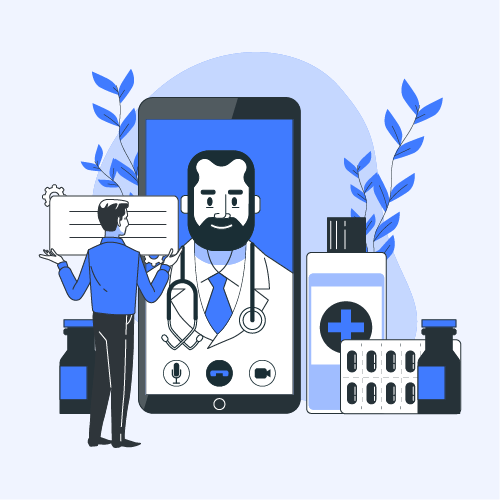4 Things You Should Know About Healthcare App Development
Health and Wellness are gaining widespread popularity throughout the world with increasing leaps in technology being made in the diagnosis and treatment of new and existing diseases and health conditions. In this market scenario, launching a healthcare mobile app development is a good idea to transform the industry considering the number of potential users across the globe. There are a few things that are good to know before you start healthcare application development:
1. User friendly UI/UX
Since a healthcare app will be accessed by people who are medically disadvantaged, the UI should be much easier to access than other apps.
This implies that UI is important to attract users in the innovation in healthcare. Most people who are ill or undergoing symptoms of ill health or other chronic conditions should be able to navigate through the app with a minimum modicum of effort.
Personal Health related data has to be entered for most of these apps for either archiving or diagnosis purposes. It is for this reason that health data entry by the user should be completely effortless and accurate guided by the UI of the app.
Making the app have a positive look and feel in terms of lingo throughout the app , the colour schemes, the alert sounds etc. The app should reassure the user that their healthcare concerns will be addressed here without any hassles and leave them with a sense of wellbeing when they are done using the app.
2. Healthcare Data Security and Confidentiality
Personal Information Protection and Electronic Document Act (PIPEDA) in Canada state the procedures and restrictions in administrating personal data for businesses. Data Protection Directive 1995/46/EC (Section 2.1) and the e-Privacy Directive 2002/58/EC (Section 2.2) are data protection laws that govern the exchange of data by commercial concerns over electronic media.
The laws above are from different regions around the globe. This means that the app you build has to comply with these laws or face legal action. One solution is to build and release different versions of the app for specific sections of the globe to reduce legal liability and increase app effectiveness and compliance. This would reduce the cost of app development in the long run thus adding to the bottom line (revenue).
3. Integration with Emergency Services and Related Services
To ensure maximum effectiveness and value add for the app it is a great idea hardwire emergency services into the app. For Example: Ambulances on call, ICU on wheels etc.
Since healthcare apps only focus on diagnosis and suggestions for treatment, it would give your app an edge if you linked online pharmacies to the same app to enable purchase and home delivery of medication after diagnosis and prescription are complete.
4. App Testing
Crucial as this phase is to any app development, in this case, the error margin for user tasks should be really low. Since app failure in some cases may mean serious implications for the patient. For example: in the case of an emergency if healthcare providers cannot access patient data on the app, it may lead to the death of the patient or may lead to some form of impairment. The testing can focus on the responsiveness of the app during adverse conditions such as signal drops, refresh rates for the app data etc. This step is most necessary since the level of dependence and criticality is higher in this nature of app than others.
Want to design and launch custom, native medical apps quickly? Contact us and our team will convert your dreams into reality.

strategies your digital product..



